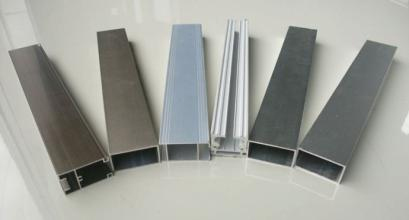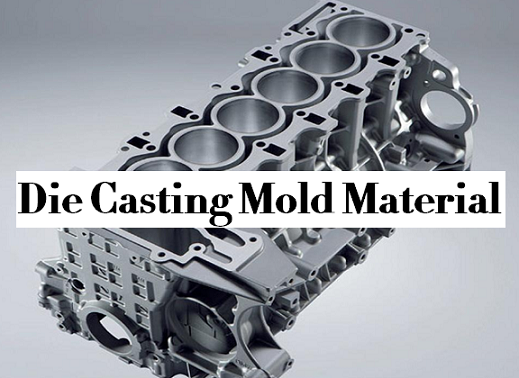Our Alcast Company Statements
Our Alcast Company Statements
Blog Article
Unknown Facts About Alcast Company
Table of ContentsThe Alcast Company StatementsThe 10-Minute Rule for Alcast CompanyGetting My Alcast Company To WorkSome Known Questions About Alcast Company.Not known Facts About Alcast CompanyThe Ultimate Guide To Alcast Company
Chemical Comparison of Cast Aluminum Alloys Silicon promotes castability by decreasing the alloy's melting temperature and enhancing fluidity throughout casting. In addition, silicon contributes to the alloy's toughness and use resistance, making it valuable in applications where toughness is vital, such as automobile components and engine elements.It also improves the machinability of the alloy, making it less complicated to process right into ended up items. In this method, iron adds to the general workability of light weight aluminum alloys.
Manganese contributes to the toughness of aluminum alloys and boosts workability. Magnesium is a light-weight aspect that gives strength and effect resistance to aluminum alloys.
An Unbiased View of Alcast Company
It allows the manufacturing of lightweight components with excellent mechanical homes. Zinc enhances the castability of aluminum alloys and helps regulate the solidification process during casting. It enhances the alloy's strength and firmness. It is frequently located in applications where elaborate shapes and great details are necessary, such as ornamental castings and certain auto parts.

The main thermal conductivity, tensile toughness, return toughness, and elongation vary. Among the above alloys, A356 has the greatest thermal conductivity, and A380 and ADC12 have the least expensive.
The Ultimate Guide To Alcast Company

In accuracy casting, 6063 is appropriate for applications where complex geometries and high-quality surface finishes are critical. Examples consist of telecommunication rooms, where the alloy's superior formability enables for streamlined and aesthetically pleasing layouts while keeping architectural honesty. Similarly, in the Lighting Solutions market, precision-cast 6063 parts develop classy and efficient illumination fixtures that need complex forms and excellent thermal efficiency.
The A360 shows superior elongation, making it optimal for complicated and thin-walled components. In accuracy spreading applications, A360 is fit for sectors such as Consumer Electronic Devices, Telecommunication, and Power Devices.
3 Simple Techniques For Alcast Company
Its distinct properties make A360 a valuable option for precision casting in these industries, improving product toughness and More Info top quality. aluminum casting manufacturer. Light weight aluminum alloy 380, or A380, is a widely utilized spreading alloy with a number of distinctive attributes.
In precision spreading, light weight aluminum 413 beams in the Customer Electronic Devices and Power Equipment sectors. This alloy's remarkable deterioration resistance makes it an excellent selection for outdoor applications, making certain lasting, durable products in the stated industries.
4 Simple Techniques For Alcast Company
When you have decided that the aluminum pass away casting procedure is ideal for your job, an important following step is picking one of the most suitable alloy. The light weight aluminum alloy you select will significantly influence both the casting procedure and the properties of the last item. As a result of this, you must make your decision thoroughly and take an educated strategy.
Figuring out the most appropriate aluminum alloy for your application will certainly mean considering a wide array of characteristics. These relative alloy features follow the North American Pass Away Spreading Association's standards, and we've split them into 2 categories. The initial category addresses alloy qualities that affect the manufacturing procedure. The 2nd covers features influencing the homes of the end product.
The Single Strategy To Use For Alcast Company
The alloy you select for die spreading directly impacts a number of elements of the spreading process, like just how simple the alloy is to collaborate with and if it is susceptible to casting issues. Hot fracturing, additionally called solidification fracturing, is a regular die spreading issue for aluminum alloys that can lead to internal or surface-level tears or splits.
Particular light weight aluminum alloys are more susceptible to warm cracking than others, and your selection needs to consider this. One more common defect found in the die spreading of aluminum is die soldering, which is when the cast sticks to the die walls and makes ejection difficult. It can damage both the cast and the die, so you must seek alloys with high anti-soldering residential properties.
Corrosion resistance, which is already a remarkable quality of light weight aluminum, can vary substantially from alloy to alloy and is an essential characteristic to take into consideration relying on the ecological problems your item will be subjected to (aluminum casting manufacturer). Use resistance is an additional residential property commonly sought in light weight aluminum products and can separate some alloys
Report this page